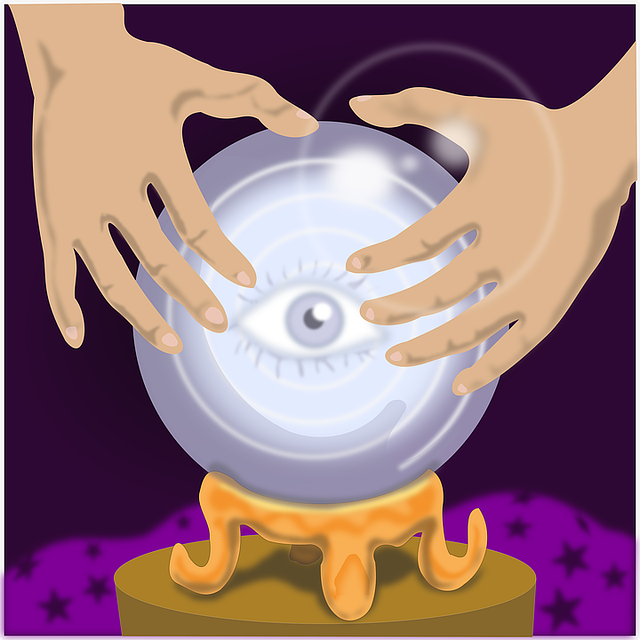Handling Divination spells in D&D is hard for any new dungeon master (DM) and for many veteran dungeon masters. They can if not handled correctly destroy the game or make the players feel powerless.
Handling Divination spells in D&D is hard. You have to be prepared, make the spell worthwhile, and not make the spell destroy your game.
This sounds simple, but most beginning dungeon masters cannot handle divination spells correctly. I myself have failed and handled them poorly. Today, let’s learn from my failures and others in order to find a solution on how to deal with divination spells.
The problem
This section is for those who are not dealing with divination problems but are curious about what can happen. If you are currently dealing with divination problems and need an answer jump to the next section.
Clarifying the problem is important because we are not all on the same page. To put it simply, handling divination spells in D&D is a problem because it can break the game.
Is your big bad evil guy (BBEG) planning something? It would be a shame if the players found out about that plan too early and decided to stop it. How about when the players want to find something that you are not prepared for? Do you tell them everything that you can think of and spoil the surprise of what can happen later on?
Many dungeon masters when surprised by divination spells reveal too much. The other dungeon masters don’t give the players anything in order to keep the story safe. This makes the players feel like divination spells are worthless and that they don’t have agency. Their actions don’t matter and clever solutions are dismissed if they don’t fit what the dungeon master wants.
Do you want your players to feel like they shouldn’t be creative or do odd actions? Do they feel like they should be part of the narrative but can’t? Having your players spell fail to be useful can cause all of these things. Especially with divination spells.
Too much
Handling divination spells in D&D is a bit tricky as we have stated. If you choose to slash the player’s information and make the spell almost useless it has a lot of negative effects. Divination magic can also have a negative effect if it is too powerful.
When the players cast divination and uncover a BBEGs plot it can completely destroy the game. If the players scry every dungeon before entering they might gain secret information.
If divination spells are used, consider what they will find.
When a player uses divination spells and you have no idea of what they should find take a breather and think.
Augury is extremely limited in specificity and time. When a player asks if they are in danger of dying and are going into a dungeon, you can just give a woe. Generally, Augury should be given the information that you think is most appropriate to their question. This way in-game players think this is a great move but out of game it really doesn’t provide much insight.
Divination provides a bit more insight, but it is only 1 question. That question may shatter the game like ‘where is the BBEG right now?’
The players are not ready to face it and giving too much information will kill the players or completely destroy the plot. On one hand, experienced dungeon masters welcome this. On the other, even some experienced dungeon masters don’t want to deal with this.
When too much information would be given with divination you have to look at yourself and realize what type of dungeon master you are. Are you ready for chaos or is a divination spell too easy to solve this problem? Are you ready for a divination spell to be heavily relied upon?
Because giving a concrete answer is too easy, you might want to give a cryptic answer. If the BBEG is meeting a white dragon you might give an answer like “where life freezes and evil abodes. A deed is done and an accord struck.”
You want to give the players some information but not enough to say exactly where the BBEG is. The players with some thought might be able to piece together where the BBEG is, or find out later and realize that the BBEG was here. This works since the players gain information retroactively or through hard work and thought.
You need to give answers that are truthful about the situation. Tell what is happening and a little bit about the environment but not too much. This will not let the players know exactly where the target is, but they will be able to piece together a part of the plot. This also helps player investment into the plot and is a win-win.
Scrying

Scrying is a 5th level spell and is very powerful, but it has limits.
You almost always give too much when describing a scry. The player finds out where the target is or can scry a location that they have visited.
For locations, scrying is perfectly fine. If the players scry and find someone at a previous location this is a good thing. The players have been to this area before and should be able to know what is happening. They already know the location so learning about what is happening there shouldn’t be a big deal.
Scrying on a person is a much bigger deal. The players can hunt an individual, scry on anyone that they know (even the BBEG) and completely de-rail the story.
There is good news! Scry is able to be seen by anyone who can see invisibility and can only be done once a day.
This can give the party crucial information, but it can also be useful to dungeon masters.
Think about what the players are missing. What do you want them to know? Use that spell to tell them what they are missing through scry. If the players are trying to hunt a person with scry I also have good news. Scry is a 5th level spell. If the players are hunting someone or using it to get the information they are using a huge spell slot.
When the spell slot doesn’t become a major issue the party is 11th or 13th level. At this point, the BBEG should have access to teleport or be able to move in some way that the party cannot ‘catch up.’ Creatures at higher levels will also be able to see invisibility and some have that or truesight on permanently. At this point, you can have a weird look into the camera and threaten the players.
But back to the issue of scrying at 9th-10th or even 11th level. It is a powerful spell and should feel like one. Players can only use it once a day per target and should get results. You do not want to make the players feel like they wasted the spell unless the target made it’s save.
Give your players plot information that you want them to have. Think of what they are missing and give it to them!
You are also able to use spells like scry on your players.
BBEG and scry

I am not going to cover the idea of ‘too little’ information because the problem with that is already outlined above. Instead, we are going to think about using scry as a BBEG on players.
The BBEG initially will not care about the players. I would be surprised if the BBEG even knew about the player’s existence. They have other things to worry about and are creating plots. Once the players start to become a thorn in the BBEG side, then things get interesting.
I generally do not let my players fight intelligent spellcasters since they have not found out how to beat them. Part of the reason is that I know their spells, abilities, etc. You may call this out of game knowledge, but if the player can gain information on the BBEG then the BBEG can gain information on them.
I would with a wizard send out an invisible imp familiar to follow the party from a distance. Imps have great stealth and are permanently invisible. This is a great source of information, but most humanoid creatures run when they are loosing. If the players are ever unable to kill a creature that runs away it will inform the BBEG about the party and their tactics/spells.
Do this enough and you have an intricate understanding of what the players are doing. Their activities might even warrant a scry of your own, and you may use an arrow, piece of clothing, or something of theirs to make it happen.
The BBEG might know they are using scry and when they would use scry. Most likely before camp. The BBEG would put on a spell on nondetection and scry on them! Their plans, names, and everything is leaked to the BBEG and divination spells backfire.
These are all great ways to get information and use scry as the BBEG, but one of the funniest things is when the BBEG scrys on the players and they scry him. You get this weird standoff and both parties know about the scrying. They will get paranoid and start trying to cast nondetection, look over their shoulder, and the game now becomes an information war.
Conclusion
Divination spells do not have to be a problem. They can be a lot of fun and give the players some key plot points that they are missing.
It is also important to make sure that the players feel like their spells are going to good use. No one likes a spell being used and having it do nothing. The same goes with divination spells.
Handling divination spells in D&D can become fun when both sides are using them. Don’t be afraid to have the BBEG use divination to learn about the players. This gives an eerie feeling and if the BBEG reveals something that they shouldn’t know to the players the game can almost become a horror game. If you are interested in running a horror game check out our Halloween article on it.
Divination spells are not something to be feared. Just take a deep breath, think of what would happen, and tell the players. Only if you panic do players get too much information. Use this as an opportunity rather than a campaign destroying spell.
I hope that this helps you use divination spells.
This has been Wizo and keep rolling!




